Abstract
OBJECTIVE--To determine the psychiatric consequences of being a road traffic accident victim. DESIGN--Follow up study of road accident victims for up to one year. SETTING--Emergency department of the John Radcliffe Hospital, Oxford. SUBJECTS--188 consecutive road accident victims aged 18-70 with multiple injuries (motorcycle or car) or whiplash neck injury, who had not been unconscious for more than 15 minutes, and who lived in the catchment area. MAIN OUTCOME MEASURES--Present state examination "caseness"; post-traumatic stress disorder and travel anxiety; effects on driving and on being a passenger. RESULTS--Acute, moderately severe emotional distress was common. Almost one fifth of subjects, however, suffered from an acute stress syndrome characterised by mood disturbance and horrific memories of the accident. Anxiety and depression usually improved over the 12 months, though one tenth of patients had mood disorders at one year. In addition, specific post-traumatic symptoms were common. Post-traumatic stress disorder occurred during follow up in one tenth of patients, and phobic travel anxiety as a driver or passenger was more common and frequently disabling. Emotional disorder was associated with having pre-accident psychological or social problems and, in patients with multiple injuries, continuing medical complications. Post-traumatic syndromes were not associated with a neurotic predisposition but were strongly associated with horrific memories of the accident. They did not occur in subjects who had been briefly unconscious and were amnesic for the accident. Mental state at three months was highly predictive of mental state at one year. CONCLUSIONS--Psychiatric symptoms and disorder are frequent after major and less severe road accident injury. Post-traumatic symptoms are common and disabling. Early information and advice might reduce psychological distress and travel anxiety and contribute to road safety and assessing "nervous shock."
Full text
PDF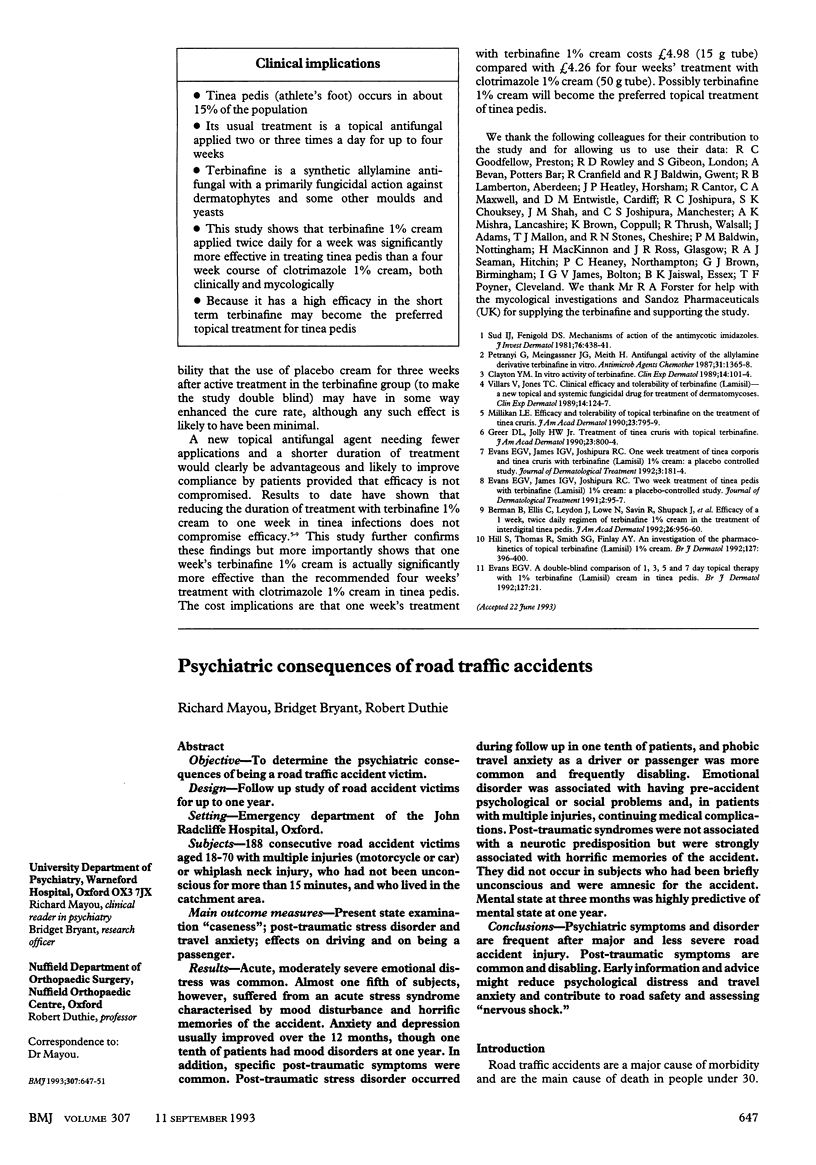
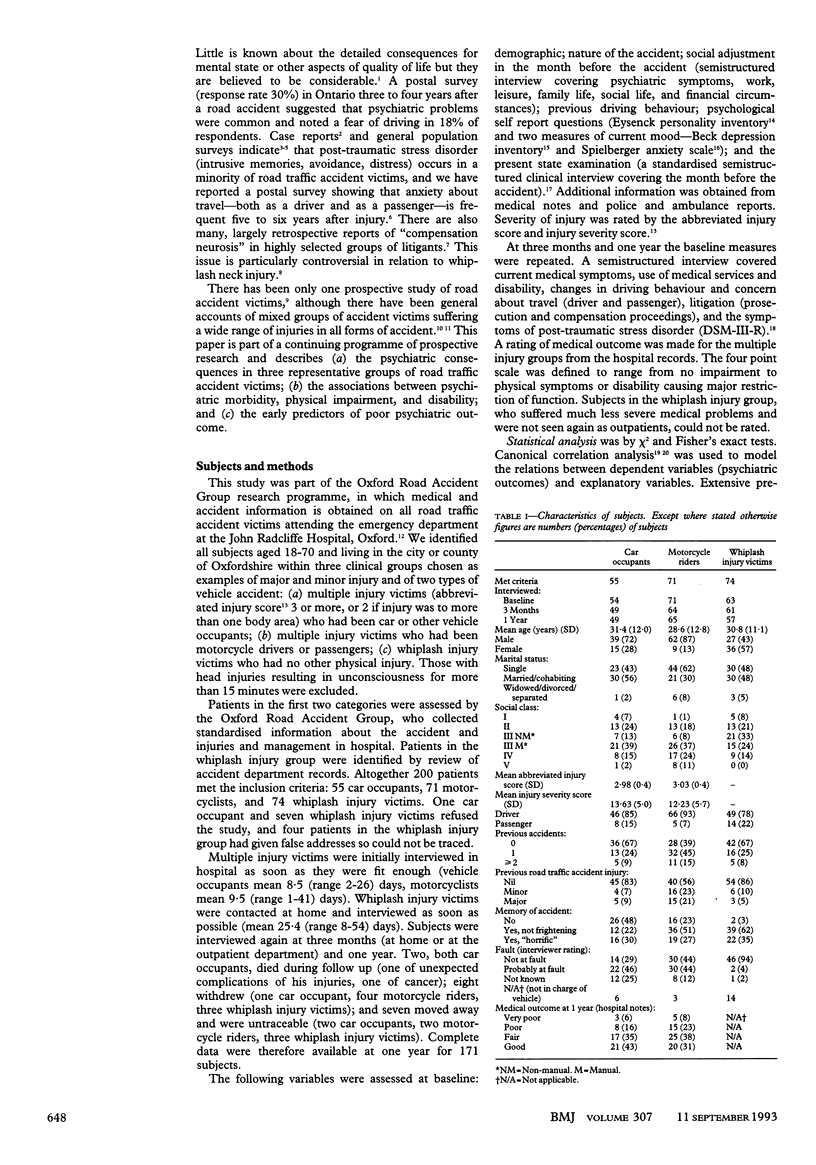
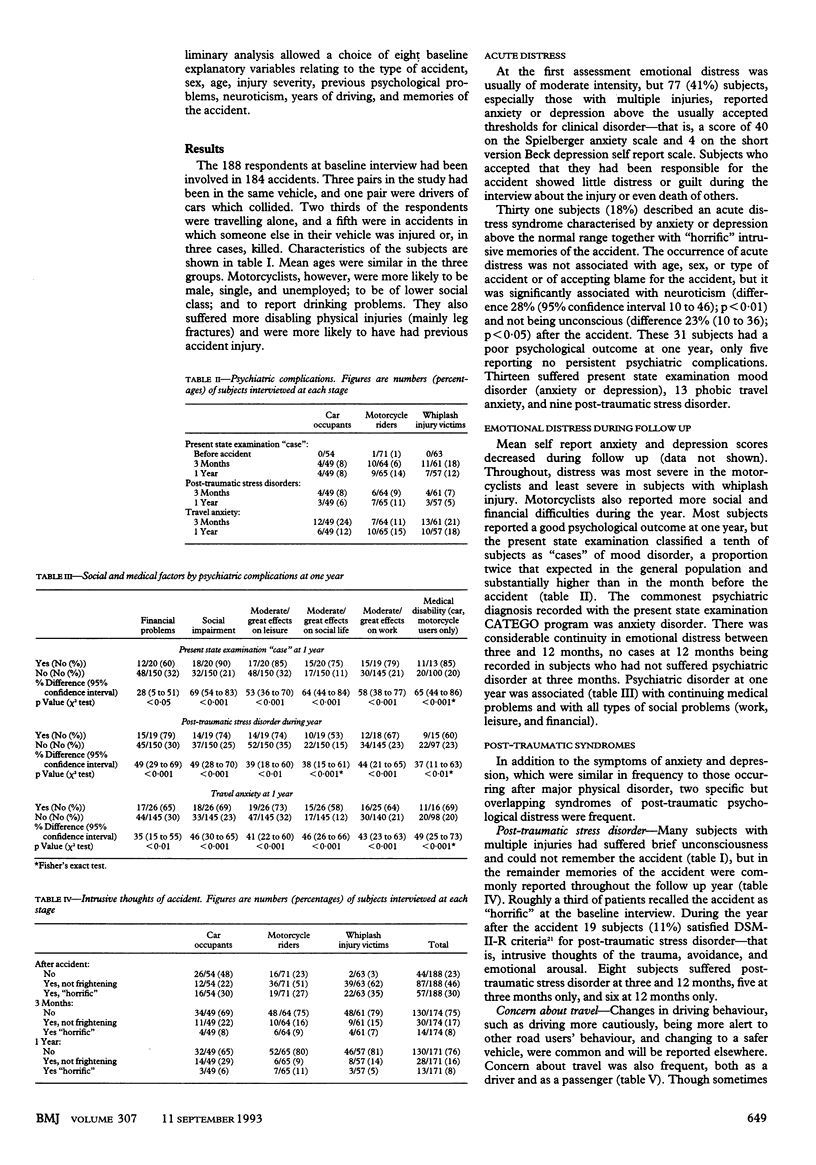
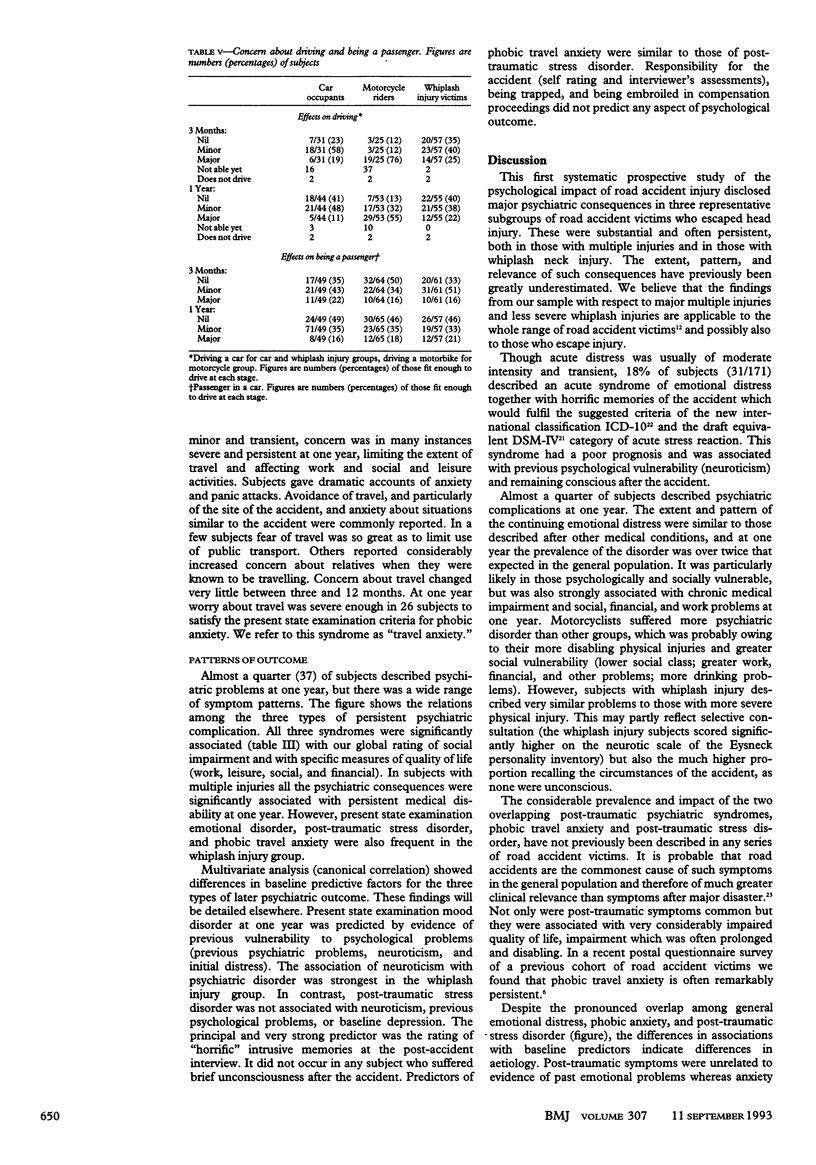
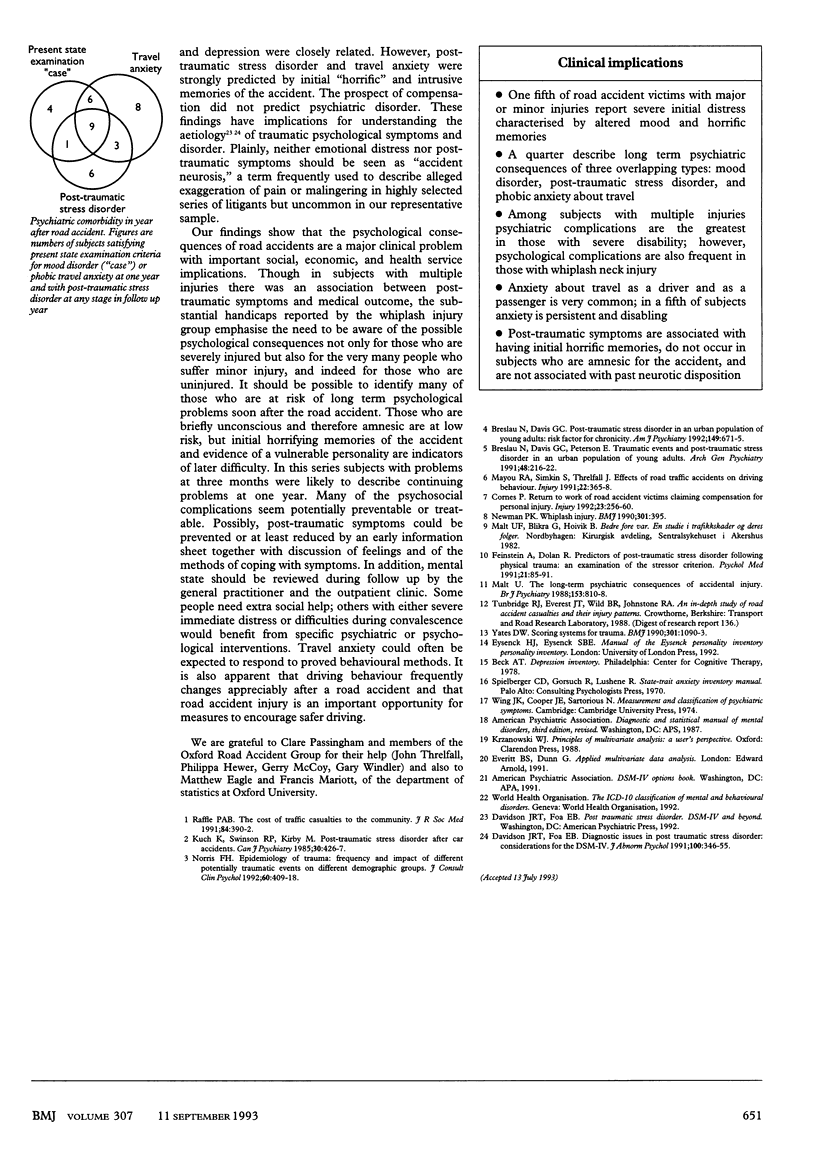
Selected References
These references are in PubMed. This may not be the complete list of references from this article.
- Breslau N., Davis G. C., Andreski P., Peterson E. Traumatic events and posttraumatic stress disorder in an urban population of young adults. Arch Gen Psychiatry. 1991 Mar;48(3):216–222. doi: 10.1001/archpsyc.1991.01810270028003. [DOI] [PubMed] [Google Scholar]
- Breslau N., Davis G. C. Posttraumatic stress disorder in an urban population of young adults: risk factors for chronicity. Am J Psychiatry. 1992 May;149(5):671–675. doi: 10.1176/ajp.149.5.671. [DOI] [PubMed] [Google Scholar]
- Cornes P. Return to work of road accident victims claiming compensation for personal injury. Injury. 1992;23(4):256–260. doi: 10.1016/s0020-1383(05)80011-7. [DOI] [PubMed] [Google Scholar]
- Davidson J. R., Foa E. B. Diagnostic issues in posttraumatic stress disorder: considerations for the DSM-IV. J Abnorm Psychol. 1991 Aug;100(3):346–355. doi: 10.1037//0021-843x.100.3.346. [DOI] [PubMed] [Google Scholar]
- Feinstein A., Dolan R. Predictors of post-traumatic stress disorder following physical trauma: an examination of the stressor criterion. Psychol Med. 1991 Feb;21(1):85–91. doi: 10.1017/s0033291700014689. [DOI] [PubMed] [Google Scholar]
- Malt U. The long-term psychiatric consequences of accidental injury. A longitudinal study of 107 adults. Br J Psychiatry. 1988 Dec;153:810–818. doi: 10.1192/bjp.153.6.810. [DOI] [PubMed] [Google Scholar]
- Mayou R., Simkin S., Threlfall J. The effects of road traffic accidents on driving behaviour. Injury. 1991 Sep;22(5):365–368. doi: 10.1016/0020-1383(91)90095-v. [DOI] [PubMed] [Google Scholar]
- Newman P. K. Whiplash injury. BMJ. 1990 Sep 1;301(6749):395–396. doi: 10.1136/bmj.301.6749.395. [DOI] [PMC free article] [PubMed] [Google Scholar]
- Norris F. H. Epidemiology of trauma: frequency and impact of different potentially traumatic events on different demographic groups. J Consult Clin Psychol. 1992 Jun;60(3):409–418. doi: 10.1037//0022-006x.60.3.409. [DOI] [PubMed] [Google Scholar]
- Yates D. W. ABC of major trauma. Scoring systems for trauma. BMJ. 1990 Nov 10;301(6760):1090–1094. doi: 10.1136/bmj.301.6760.1090. [DOI] [PMC free article] [PubMed] [Google Scholar]


